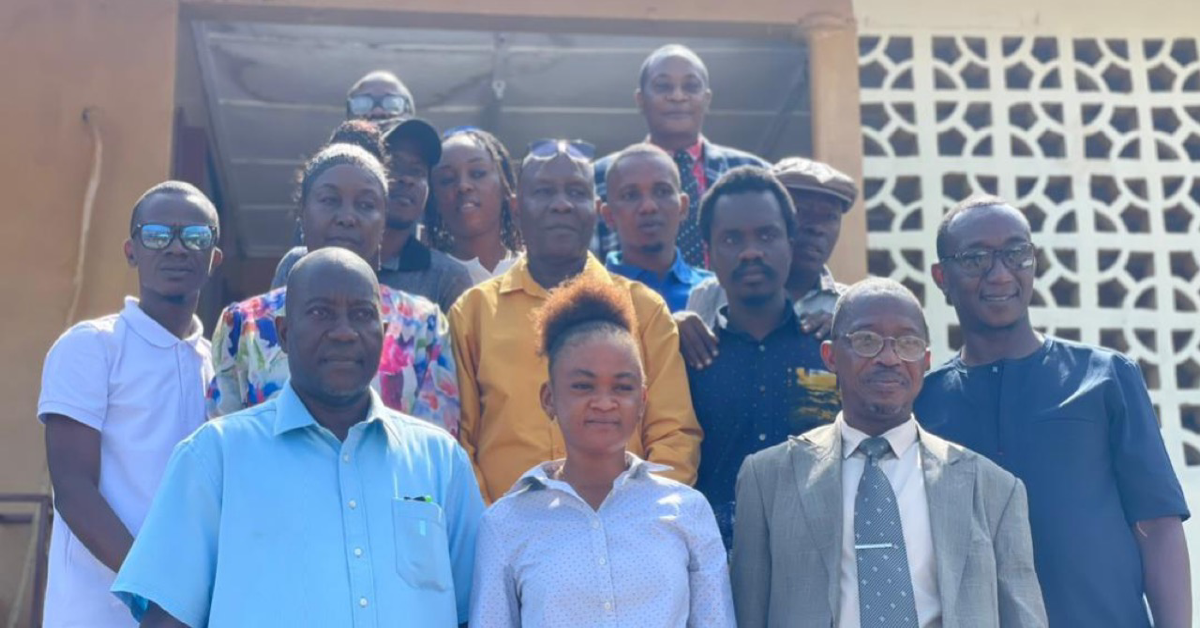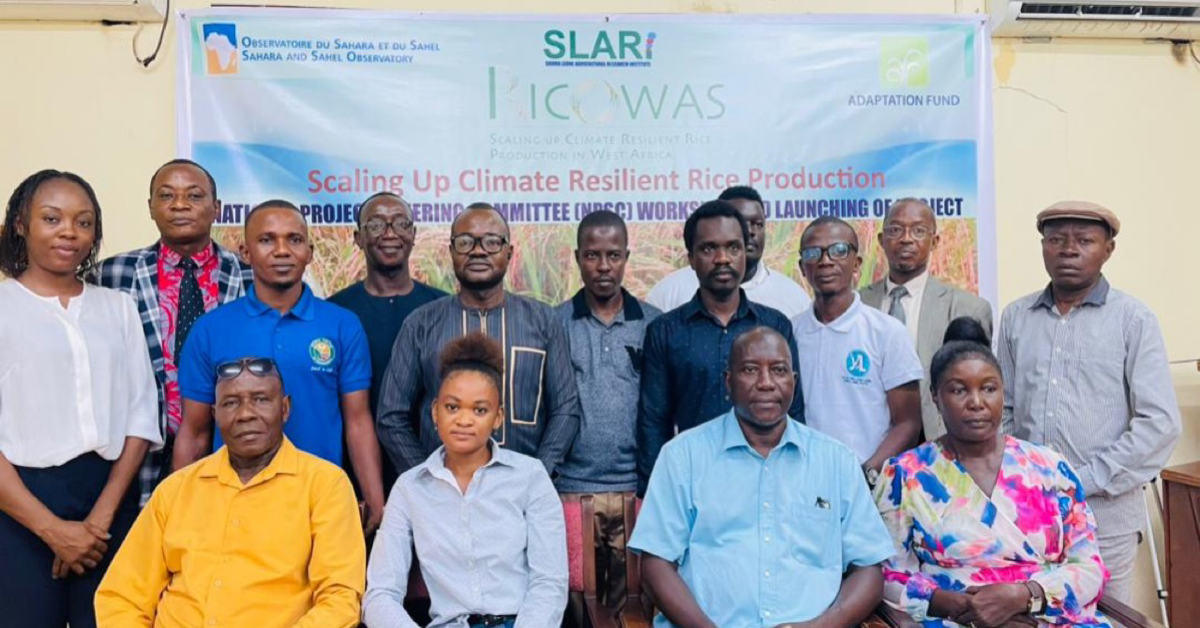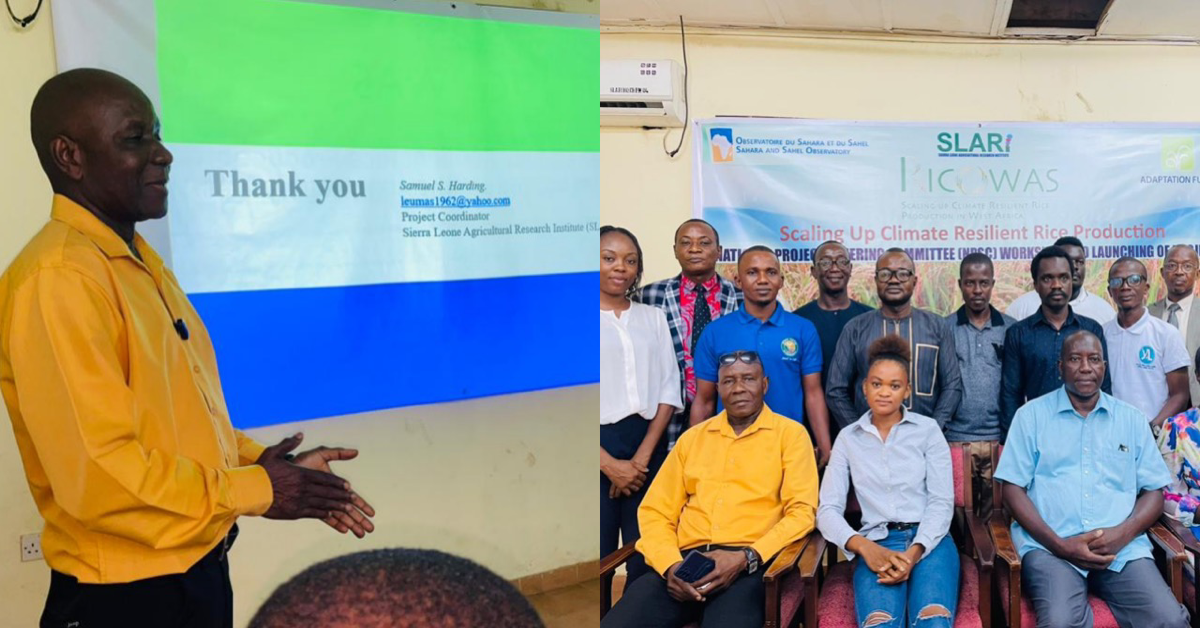Sierra Leone Agricultural Research Institute (SLARI) has officially unveiled the Scaling Up Climate Resilience Rice Production project in West Africa, known as RICOWAS, aligning with President Bio’s vision for FEED SALONE.
Arouna Rashid Kamara, the Deputy Director of SLARI, highlighted that this project, funded by the Adaptation Fund and executed by the Sahara and Sahel Observatory (OSS), represents a significant leap forward in enhancing the resilience of smallholder rice farmers and stakeholders in Sierra Leone’s rice sector.
The launch event, hosted at SLARI Headquarter on the 19th October, 2023, witnessed a diverse gathering of attendees, including representatives from the Ministry of Agriculture and Food Security, the National Federation of Farmers of Sierra Leone (NaFFSL), and other key state actors. They all eagerly anticipate the transformative impact of the RICOWAS project on Sierra Leone’s rice production landscape.
Speaking with the Country Project Coordinator, Samuel Harding, he emphasized the project’s aim to bolster President Bio’s FEED SALONE initiative, considering rice as a staple food in Sierra Leone.

He remarked, “The RICOWAS project is committed to fortifying the resilience and capacity of smallholder rice farmers and other stakeholders in the West African rice sector. This will be achieved through the adoption of sustainable agro-ecological land and water management strategies to combat the challenges posed by a changing climate, ultimately boosting rice production in the country.”
In addition, Harding highlighted the key objectives of the RICOWAS project, which include promoting Climate-Resilient Rice Production by implementing the System of Rice Intensification (SRI) method and locally adapted soil and water conservation practices to enhance production while reducing environmental impact. Additionally, the project will engage in advocacy efforts to promote sustainable rice production methods and aims to forge partnerships at the national and regional levels, bringing together governments, research institutions, NGOs, and other stakeholders to enhance the resilience of Sierra Leone’s rice sector.
In conclusion, Harding emphasized that the RICOWAS project is poised to bring about significant positive change in the West African rice sector by addressing climate change challenges and ensuring food security in Sierra Leone. With its multifaceted approach encompassing capacity building, sustainable farming practices, knowledge exchange, and partnerships, the project is well-prepared to achieve its ambitious goals.

The launch of the RICOWAS project underscores the Sahara and Sahel Observatory’s commitment to a sustainable and climate-resilient future in rice production. As this initiative takes root, it is expected to profoundly impact not only the agricultural sector but also the livelihoods of countless farmers and communities across Sierra Leone. Sierra Leone is poised to confront climate change challenges, and the RICOWAS project represents a powerful step in the right direction.











